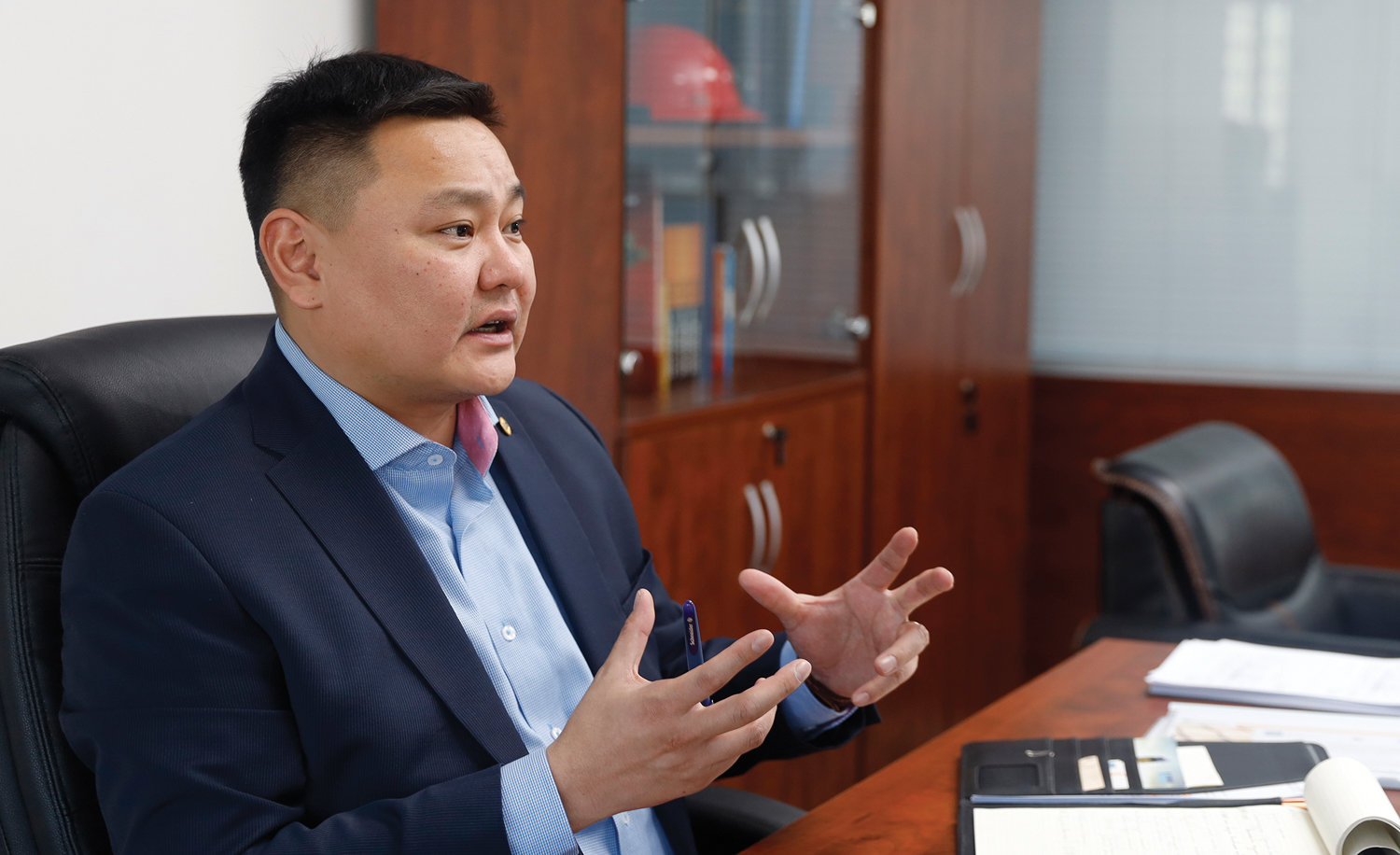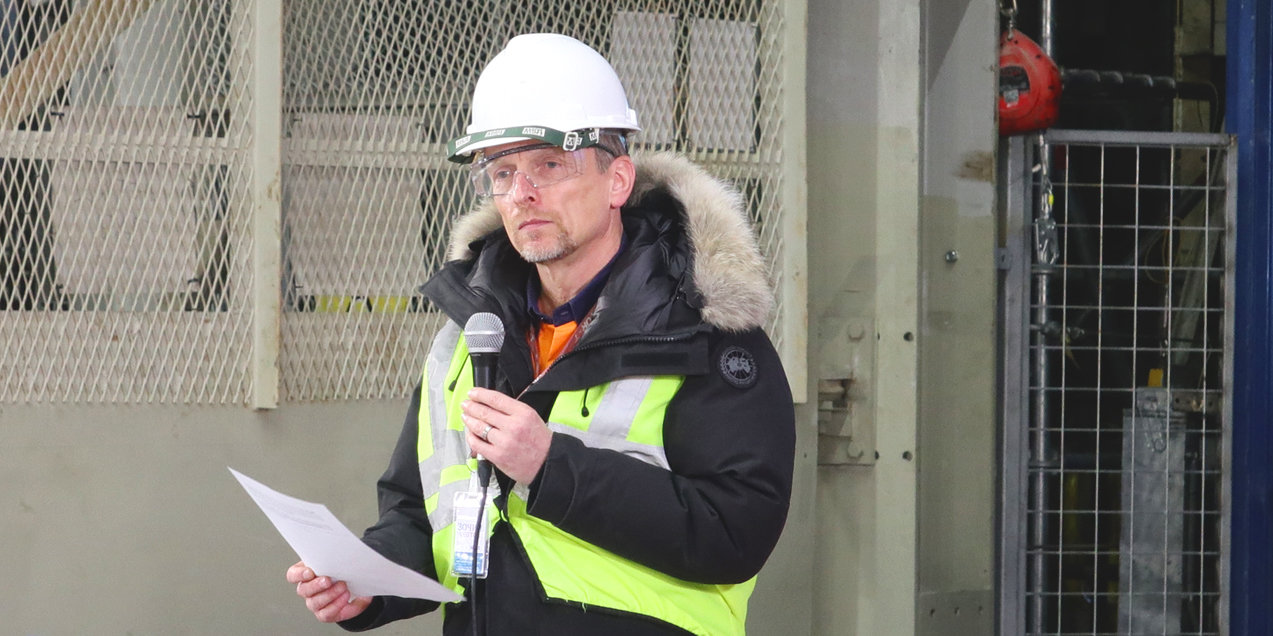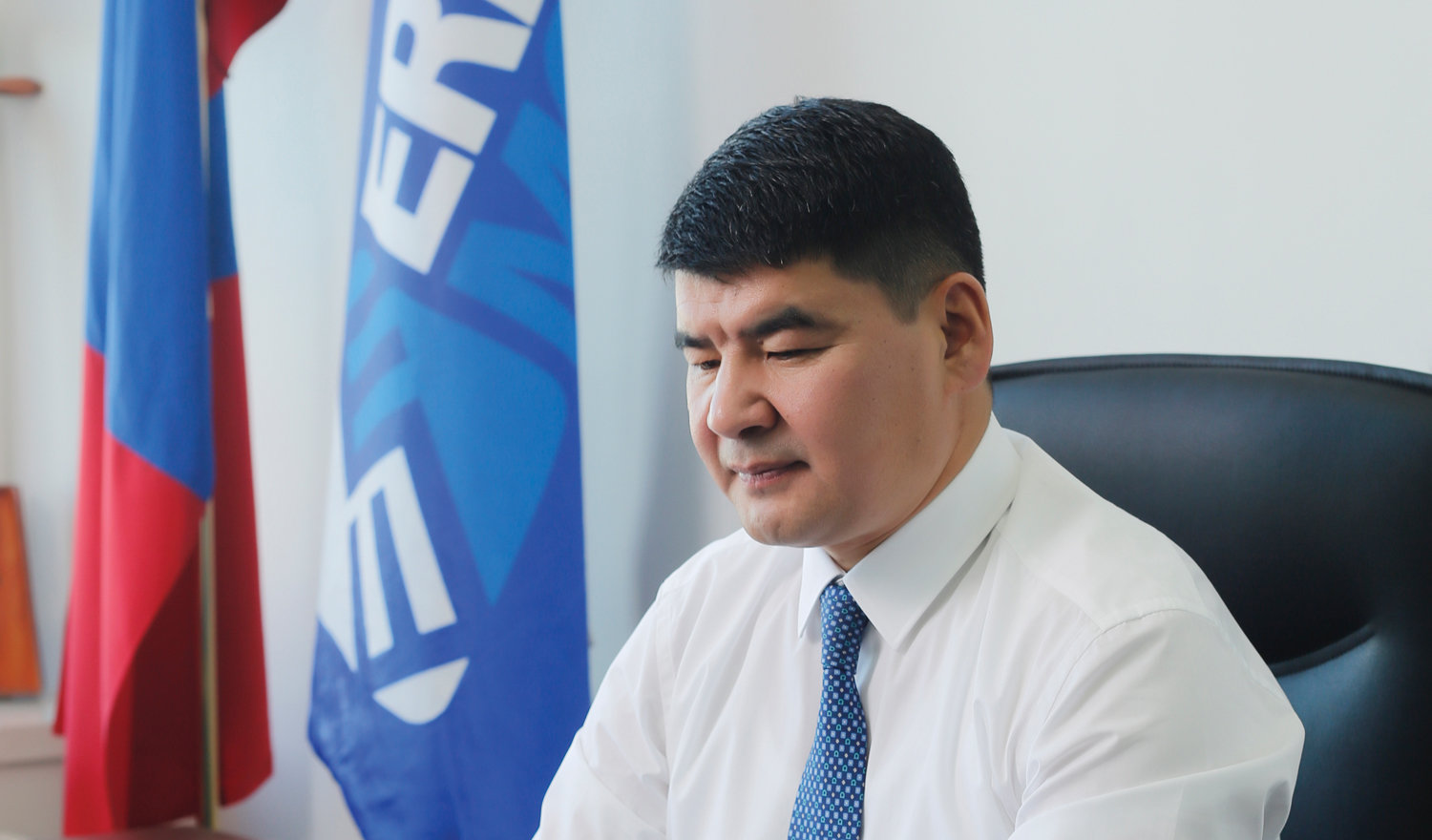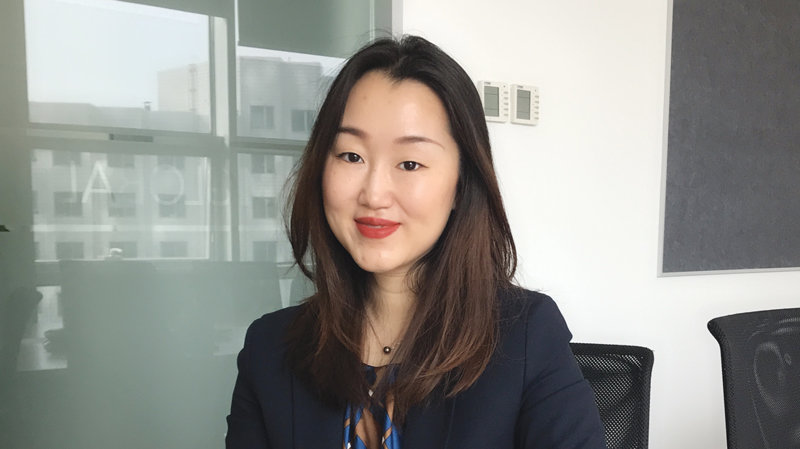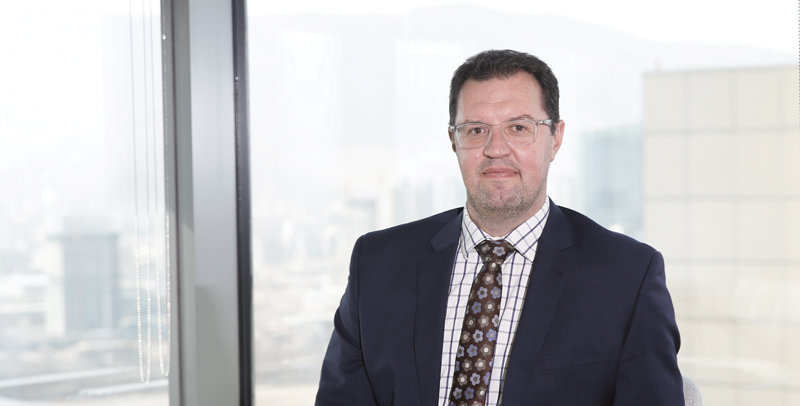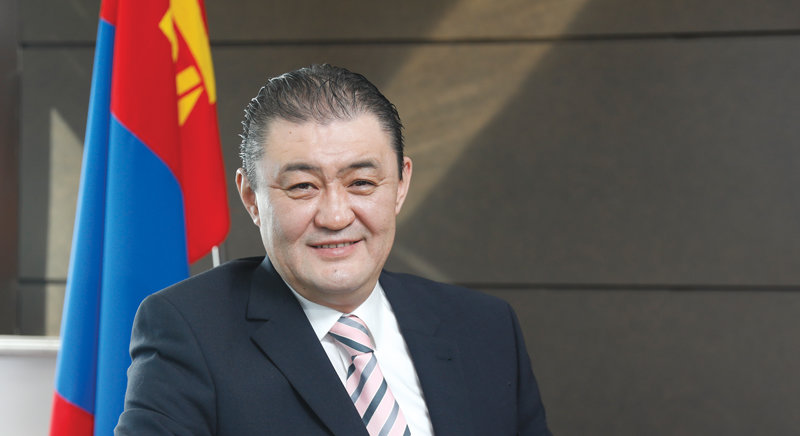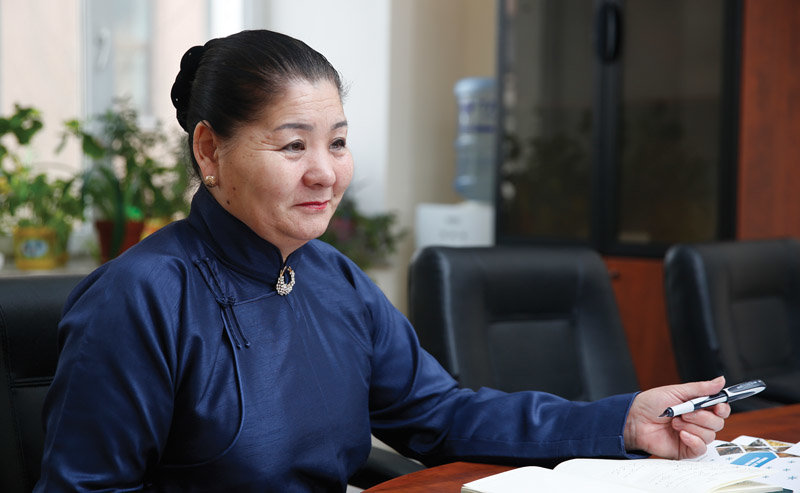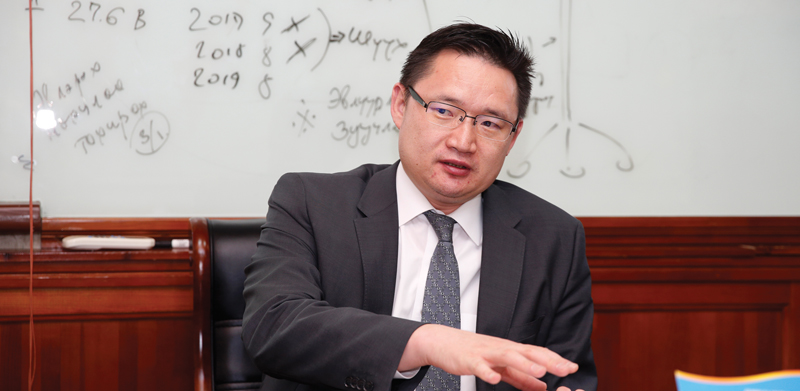Interview
“We no longer have any long-term plan to develop our mining sector”
I have been in the geological sector for 34 years and have worked in both the state and private sectors, as also in research organizations and foreign investment companies. I never left geology, even in the difficult years of transition to the market economy. After graduating in 1986 from the State University in Irkutsk in the then Soviet Union, I started my career as a specialist in the Institute of Geological and Mining Production and Research in what was then called the Geological and Mining Ministry. Here I did some Mongolia-related research under the guidance of Dr. J.Byambaa. Then I was a researcher with the Institute of Geology of the Academy of Sciences, and a specialist in charge of the Mongolia-related studies when the Mineral Resources Authority was founded. I am proud that I have worked closely with Mongolia’s best of the best scientists.
Erdenes Alt “exclusively focused” on setting up refinery
An agreement on setting up a gold refinery in Mongolia was signed during Prime Minister U. Khurelsukh’s visit to Kazakhstan in October 2019. The signatory on behalf of Mongolia was B. Achitsaikhan, CEO of Erdenes Alt Resource. G. Iderkhangai finds out from him the terms of the agreement and the progress on the ground.
A viable refinery must have adequate raw material to feed it. How successful has been Erdenes Alt Resource in prospecting, exploring, and extracting the precious metal?
Our company’s key goal is to build a gold refinery in Mongolia. From the very beginning we have been working with support from the Ministry of Mining and Heavy Industry and our parent company, Erdenes Mongol, on preparing for this. We have chosen the location and are now studying what kind of infrastructure we shall need.
Turquoise Hill sees Parliament resolution as “a positive step in the right direction”
After a period of uncertainty, the Oyu Tolgoi underground project ends the year on a high note. Belying apprehensions, in late November the Mongolian Parliament gave an unconditional go-ahead to continuing with the work under the existing agreements – admittedly with the proviso that the Government must try to derive more benefit from them for Mongolia – and construction of shaft 2 -- the major shaft to transport underground ore to the surface – was complete. Ulf Quelmann, CEO of Turquoise Hill Resources, was present at the ceremony on 13 December to inaugurate operations of the shaft, and MMJ spoke to him on the state of the project and the mood of the investors.
“It is everybody’s silence that is making the situation worse and worse”
B. Ulziibayar, Chairman of the Board of Directors of the Mongolian Association of Securities Dealers (MASD), answers questions from MMJ on Mongolia’s current economic situation, investment environment, future of the mining sector, the stock market, and other issues.
How do you see the current economic situation?
Mongolia is not a rich country. We are a market economy and the demand for money being more than its supply, bank interest rates are high here. The demand can be met if money is poured into the economy, in the form of, say, loans and public funding. Receiving foreign investment also supports the economy in this.
“2021 would see significant expansion and diversification in the activities of Erdenes Mongol”
P. Gankhuu, CEO of Erdenes Mongol, tells G. Iderkhangai why it is right to keep the company directly under the Prime Minister and how the proposed mineral wealth fund, managed on purely professional principles, will work for the benefit of all Mongolian citizens.
How do you see the future of projects which are joint ventures between the Government and the private sector?
Erdenes Shivee Energy and Beren Group have established a joint venture company called Erdenes Steel in Dornogobi aimag, with the two sides owning equal share. The Development Bank is the financial guarantor for Erdenes Shivee Energy in the project, which plans to annually produce 300,000 tonnes of cast iron.
Turning the Development Bank into a bank for development
E.Odjargal talks to G.Amartuvshin of Development Bank of Mongolia, and finds that only months after taking over as Executive Director, he is putting in place big changes and envisions radically different ways for the institution to work more professionally, free of political control.
What are your priorities at DBM?
There are three.
First, to improve the internal organization and governance practices. Regulations and lending procedures have been streamlined. DBM used to be criticized for delay in acting on loan requests from companies and, often enough, these could not even be traced. Now the entire process has been made more transparent. Second, the credit quality. Six cases of unpaid loans have been transferred to the prosecutor.
“The priority is faster and easier border crossing for our coal”
J. Zoljargal, CEO of Mongolian Coal Association, is not too enthusiastic about expensive infrastructure development projects as, to him, what exporters need most is better facilities to take their coal to the buyer in China faster and freely. In a wide-ranging conversation he tells B.Tugsbilegt that coal prices would not always stay high, but in a positive development Chinese state policy is bringing buyers geographically closer to Mongolian coal mines.
What is the current coal export situation?
Export volume in the first half of the year was 1.5 percent less YoY, down from 19 million tonnes in 2018 to 18.6 million tonnes, but this is a marginal drop and our goal for the full year is to achieve 42 million tonnes.
“An investor prefers things to be more predictable, less uncertain”
David Sproule, Ambassador of Canada to Mongolia, tells E.Odjargal that his country is eager to share its experience in mining but investors will not come here until they feel the environment is stable, with rules for them not changing with every change in government. He also sees risks as being an inevitable corollary of ownership, and would prefer a government not to own mines, but to be satisfied with receiving taxes and royalties.
Let’s start with the 8th round table meeting between our two governments in Ulaanbaatar on 4 June. What important decisions were taken to increase cooperation in areas such as the economy, trade, investment, mining, and infrastructure, and what was noted as the major accomplishments of the past cooperation?
We have these meetings every two years. We reviewed the full range of issues, programmes and projects to make sure both countries are working hand in hand to get towards a common goal. The recent meetings were very successful.
“We are and will be here, as we believe in the strength and potential of the Mongolian natural resources sector”
RPMGlobal is a global leading mining technology products and consulting services provider with 50+ years of experience. We are publicly listed in ASX since 2009 with 23 offices in 13 countries and have worked in over 125+ countries to keep the mining industry at the forefront of change, incl. Mongolia, Kazakhstan and China in the North Asia Region. We operate in the major mining regions by a global team structure with our over 400 technical consultants and 2000+ leading associates in a broad network. We have operations in all of the world’s key mining locations enabling us to provide experts who understand the local language, culture and terrain.
“US$ 1-billion first ever Oil Refinery in Mongolia will be a milestone in India-Mongolia relationship”
I have been in diplomatic service for 30 years and have served in Vietnam, Thailand, Cuba, Canada, the UAE and the UK and have travelled to 100 plus countries across continents in the course of my Protocol duties. Immediately before assuming my position here just weeks ago, I was Director in the Ministry of External Affairs, New Delhi, in charge of international conferences and multilateral summit level meetings and ex-officio Chairperson of the Operations Committee of the prestigious Pravasi Bharatiya Kendra for the Indian diaspora spread around the world.
“We are competitors, but Australia and Mongolia can still work and grow together”
My father was an immigrant to Australia and my family’s experience helped me grow up with an understanding of different cultures, languages and a perspective of Australia’s place in the world. I studied finance and public policy, but much of my early career was focused on the education and welfare sector, working with marginalised youth.
It might seem a long stretch from youth worker to diplomat, but I was always interested in international relations, and many of the skills you need as a youth worker are similar to the ones we use in diplomacy, such as developing and maintaining strong networks, ability to refer people to services, negotiating and advocacy. Win-win situations do exist.
Chinese show interest in SNG plant
One of the proposed heavy industry projects that showed some progress is that on producing synthetic natural gas from coal. A feasibility study prepared by Wuhuan Engineering, a Chinese company, was submitted to the Ministry of Mining and Heavy Industry in May 2017, but not much seems to have happened since then.B. Temuujin, manager of the project, explains the situation to G. Iderkhangai.
Erdenes Methane hopeful of getting foreign investment
Erdenes Methane was established in February 2016 by the state-owned Erdenes Mongol to identify coal bed methane (CBM) reserves. G.Iderkhangai talks to the Executive Director of the company, D.Amar, to find out how it has been doing.
“Specific exploration squares must be offered”
MRPAM Deputy Director M.Enkhjargal tells G. Iderkhangai that while stable state policy is the priority for foreign investment in the exploration sector to resume in Mongolia, some other things should also be done to woo investors.
“Large projects should progress with no political interference”
E.Odjargal talks to B.Bayarsaikhan, Head of the National Development Agency, on the success or otherwise of the Public Investment Programme and other such moves in bringing in foreign direct investment, and on how to protect the investment climate from political instability.
“Large projects should progress with no political interference”
E.Odjargal talks to B.Bayarsaikhan, Head of the National Development Agency, on the success or otherwise of the Public Investment Programme and other such moves in bringing in foreign direct investment, and on how to protect the investment climate from political instability.
How to remember the glory days of Nalaikh
Operations at Nalaikh, the very first mine in Mongolia, were abandoned quite some time ago but artisanal miners now extract coal from there to sell to ger district households. There are considerable security risks in this and it is imperative to effectively close the mine.
How and why mining continues to be important to Australia’s economy
Australia is a microcosm of the global mining experience. MMJ finds out from Robin Evans, Program Leader, Sustainable Minerals Institute (SMI) Transformational Learning at The University of Queensland how it is addressing environmental concerns, adopting less harmful energy options, preparing to face the challenges of climate change,adjusting to automation and other issues.

